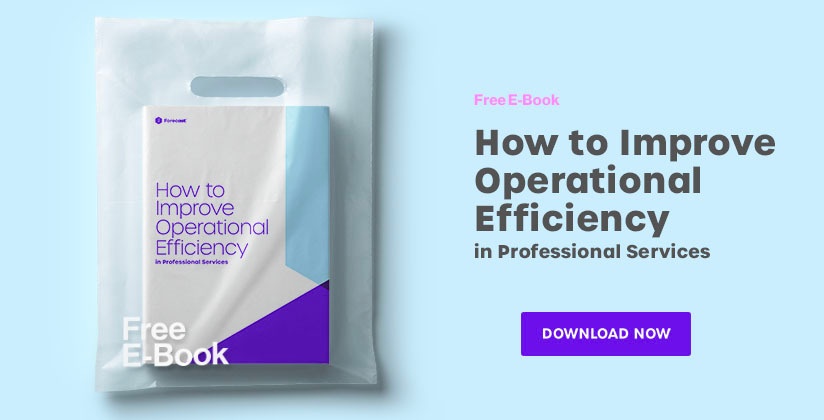What’s Best for Your Margin: T&M, Fixed Price, or Recurring Revenue?

There’s a strong link between project margins and the pricing model companies choose as part of their financial strategy. Each type of the revenue stream – time & material, fixed-price, or retainer – comes with its own twist and affects the operating margin. When you’re on the crossroad next time, deciding which revenue model could work best for your next project, consider the following facts and tips.
Time & Materials Projects
The findings of the 2020’s SPI research show that typically, time and materials-based projects produce the best margins as long as bill rates are set appropriately. The survey indicated that IT Consultancies produced the best time and materials margins at 38.7%, compared to 36.9% achieved with fixed price models. As the time & material model assumes that the cost of the project is based on the actual time spent and an hourly rate, it is less risky than a fixed price commitment. Yet another benefit, your teams become more adaptive to changing requirements without having to nail and plan all the work in advance. Eventually, paying for completed work can mean two things for your financial strategy – less uncertainty and more money saved.
Fixed-Price Projects
In reality, however, you’ll often meet clients who appreciate the simplicity of fixed-price bids. While knowing the price tag for the project beforehand might be more comforting to the client, fixed price agreements transfer risk to the service provider. The downside of fixed pricing, at least for some companies, is that everything should be set in stone. The scope of work should be defined before the project starts – meaning during the time when you know the bare minimum about your project. Fixed price revenue is more opportune for standardized projects with clear requirements from the client and deliverables decided upfront, but should be sidestepped for projects involving a lot of uncertainties. Numerous studies show that most service providers do a poor job of managing change requests to ensure fixed fee projects are not encumbered with scope change.
If you can’t decide what model to choose at this point, these simple questions should help you out:
- Do you have all requirements and expectations front and center for the project? Are you sure what the final version of the service should look like? How good do you know the final product to be released? If the answer is no, then it’s best to choose T&M. If yes, a fixed price bid is a go-to.
- Is managing financial risk critical for your business? Is it important to save costs at this point? If the answer to both questions is yes, time and material model is a better option than fixed price bids, as it’s more predictable and cost-effective.
- How adaptive, fast, and flexible do you want to be? T&M could provide you with the needed flexibility.
Retainer Projects
In addition to T&M and fixed-price bids, you might find relief in the recurring revenue model – retainers. Retainer agreements are gaining momentum as service industries hunt for more income stability. Among all pricing models, this is a wise choice, given the array of benefits retainer agreements bring to the company in contrast to one-off, fixed-price projects or time & material projects. Retainers don't only stabilize a fluctuating revenue base, they also improve client relationships and quell much of the chaos at digital agencies. According to Mike Skeehan, Managing Partner at one digital agency, “Transitioning to a more retainer-based revenue model allowed us to build a team based on a volume of work that is predictable, enabling us to maintain appropriate levels of bandwidth to keep the work-life balance in check for our staff.”
In fact, working in retainers proves to be favorable for both sides. Being paid on a continuous basis, you can focus completely on your clients' needs and issues and deliver high-quality work, rather than spend an unpredictable amount of time looking for new clients that can pay you this month. In turn, your clients can rest assured knowing that you have a dedicated amount of hours, during which you offer your services, and you’re available. Cooperating on a retainer basis, you’ll most likely be able to forecast revenue more accurately than when using other pricing strategies. Knowing what to expect from the beginning, it’s becoming easier to calculate cash flow and maintain costs.
This article is an excerpt from our eBook How to Improve Operational Efficiency in Professional Services. You can download the full eBook here:
You might like to read these articles on our blog..
Subscribe to the Forecast Newsletter
Get a monthly roundup of productivity tips & hacks delivered straight to your inbox

